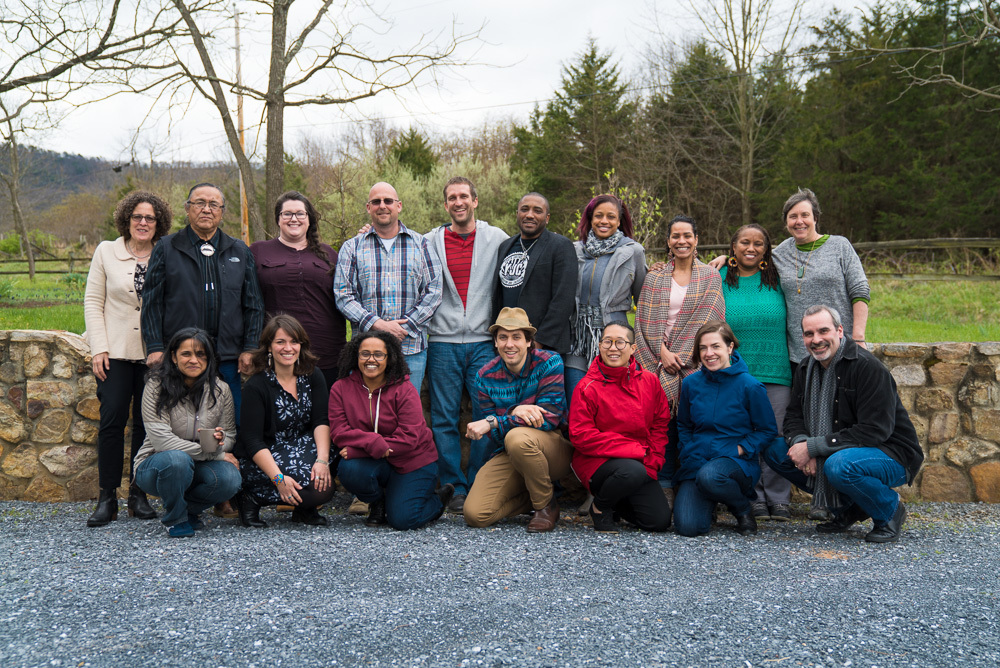In a widespread, fast-moving field such as restorative justice (RJ), how does a major grant-funding organization discern where to allot funds? One answer: engage with the Zehr Institute for Restorative Justice on a comprehensive nation-wide strategic listening process, followed by a convening of leaders in the field.
The year-long process, which makes recommendations for sustainable funding of restorative justice projects and programming, was funded by two organizations. [Editor’s note: Representatives prefer the name of the organization to be withheld.]
The $104,700 grant is the second major grant awarded in the past four years to the Zehr Institute by the granter, an international organization that collaborates with global partners to focus on promoting systemic social change in the areas of education, society, faith and care.
Conclusions of the report, issued in mid-November, will be discussed during a 90-minute free webinar on Wednesday, Dec. 6, from 4:30-6 p.m. EST. Co-authors Sonia Shah, Sarah King and Carl Stauffer, co-director of the Zehr Institute, will be the hosts.
The report found that more than 100 restorative justice practitioners from different communities across the country agreed that:
- Restorative justice is vibrant and growing.
- Western leaders have much to learn from indigenous practitioners who do not see restorative justice as separate from their holistic lifeways. Indigenous practitioners share a focus on community and healing and an antipathy to top-down enforcement.
- “Restorative justice” means different things to different communities, from providing a social service within the criminal legal system, to building a separate system, to being a social justice movement, to embodying a holistic way of life.
- There is tension between certification and community involvement, with some practitioners wanting certifications and best practices to uphold quality, while others saw a top-down approach as as a threat to community involvement and local wisdom.
The process
From December 2016 through May 2017, listening sessions were hosted in regions across the United States: northern California, Minnesota, The Navajo Nation in New Mexico and Arizona, Baltimore/Washington D.C./Virginia, and British Columbia in Canada.
The sessions – led by Shah and co-facilitators – gathered approximately 135 participants to gain a ground-level understanding of how RJ has been developed, is practiced and has evolved regionally. Shah is an RJ practitioner, professor at the California Institute of Integral Studies, and co-founder and director of the Ahimsa Collective.
In April, 12 leaders from a variety of venues where RJ is practiced gathered in the Shenandoah Valley to review the findings and to collaborate on building a framework for a cohesive, impactful and long-lasting restorative justice social movement. The group also presented suggestions regarding how the funder can “best use its allotted resources to maximize the impact of its funding and capacitation efforts in support of a durable Restorative Justice movement for the future,” according to a post-event summary.
Read more coverage about this project in Injustice Today.
Framing session participants included Carl Stauffer, co-director of the Zehr Institute; Shah, the lead facilitator; and several co-facilitators of the regional listening sessions:
- Lauren Abramson: (co-facilitator, Maryland) founder and executive director, Community Conferencing Center, Baltimore, Maryland;
- Catherine Bargen: (co-facilitator, British Columbia) community program manager and restorative justice coordinator, Public Safety and Solicitor General, Vancouver, British Columbia, Canada;
- Ashlee George: (co-facilitator, California) senior program associate, Restorative Justice Project, Impact Justice, Oakland, California;
- Sarah King: (co-facilitator, Minnesota) project assistant, Zehr Institute for Restorative Justice, CJP;
- Robert Yazzie: (co-facilitator, Navajo Nation) professor, Navajo Technical University, and retired chief justice of the Navajo Nation,Window Rock, Arizona.
Other participants came from the fields of corrections, law enforcement, higher education, domestic violence, youth activism and K-12 education, media, community organizing and politics.
The Zehr Institute of Restorative Justice is a program of Eastern Mennonite University’s Center for Justice and Peacebuilding.
